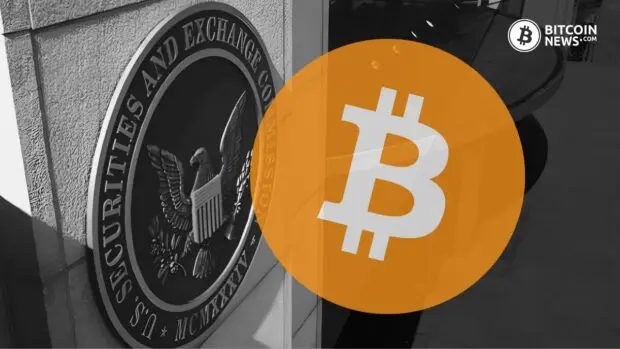Several prominent U.S. banking groups are actively pursuing entry into the Bitcoin Exchange-Traded Funds (ETFs) landscape, prompting a collective plea for a rule change to facilitate their participation in the bitcoin spot ETFs space.
On February 14, a coalition of influential trade groups, including the Bank Policy Institute, the American Bankers Association, the Securities Industry and Financial Markets Association, and the Financial Services Forum, submitted a letter to the Securities and Exchange Commission (SEC) advocating for specific modifications.

Accounting Guidance Challenges
At the heart of the matter lies the SEC’s current accounting guidance, which directs public companies, including banks, to treat digital assets they custody as liabilities on their balance sheets. This suggests that banks should allocate assets in proportion to their digital asset holdings. This approach serves as a strategy to reduce potential losses and align with rigorous regulatory capital requirements.
The coalition states that this rule hinders traditional banks’ efficiency in serving as custodians for newly launched Bitcoin spot ETFs. The restrictions arise from factors such as the “Tier 1 capital ratio and other reserve and capital requirements.”
Custodial Services for Bitcoin Spot ETFs
The banking group urges the SEC to reconsider the regulation that amplifies the cost for traditional banks to provide digital asset services. The existing rules, they argue, hinder banks from participating in the custodial services for Bitcoin ETFs, limiting the market to non-bank custody providers.
Additionally, the group highlights the concentration risk posed by a single non-bank entity dominating the custodial services for ETFs. For instance, renowned exchange Coinbase serves as a custodian for 8 out of 11 spot ETF providers.
The banking group proposes allowing regulated banks to offer custodial services for SEC-regulated ETFs, similar to non-bank asset custodians, to mitigate this concern.
Issues and Recommendations
The group also urges the SEC to refine the definition of “crypto” outlined in Staff Accounting Bulletin 121 (SAB 121) to exclude traditional financial assets recorded or transferred on blockchain networks. This, they argue, would provide clarity by distinguishing between asset types and use cases. The letter states:
“SAB 121 makes no distinction between asset types and use cases, but instead generally states that crypto-assets pose certain technological, legal, and regulatory risks requiring on-balance sheet treatment.”
The group proposes exempting banks from the on-balance sheet requirements while upholding disclosure obligations. This approach aims to enable banks to engage in select digital asset activities while maintaining transparency for investors.
SEC’s Perspective and Industry Impact
The SEC, defending its accounting guidance, highlights the uncertainties posed by digital assets compared to traditional assets. SEC Chair Gary Gensler has recently expressed concerns about the lack of appropriate disclosures in the industry.
The current guidance, known as Staff Accounting Bulletin No. 121, has faced resistance from banks, citing its restrictive impact on scaling up services for digital assets. The SEC’s stance has led to what the trade groups describe as a “chilling effect” on plans to integrate blockchain technology into traditional assets.
Earlier in February, Representatives Mike Flood, a Nebraska Republican, and Wiley Nickel, a North Carolina Democrat, jointly presented a resolution aiming to invalidate the SEC’s guidance. They argue that the regulatory body has exceeded its jurisdiction. Flood asserted in an interview:
“The SEC should not be making rules that affect bank custody. That’s a job for our prudential regulators.”
The outcome of this dialogue between the banking groups and the SEC holds significance not only for the banks seeking entry into the Bitcoin ETFs arena, but also for the broader industry dynamics.










